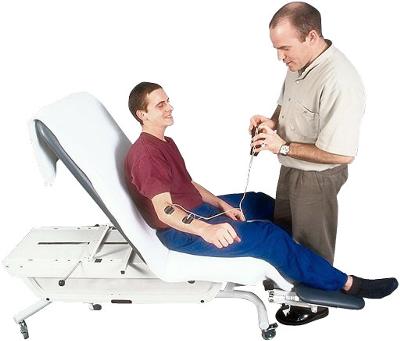Effects of Low Blood Pressure on a Person
Blood pressure is defined as the measure of stress that the walls of arteries undergo when the heart pumps out blood that circulates around the body. There is usually higher blood pressure at the entrance of the arteries.
This gradually decreases as blood passes through the arteries into the organs and then into the veins. There are different reasons why a person can have high blood pressure.
Blood pressure is usually measured as a mean value of systolic pressure and diastolic pressure. Diastolic pressure of 80 mm Hg and is considered as normal value while systolic pressure of 120 mm Hg is considered normal.
A change in the value of diastolic pressure leads to low blood pressure. A person affected with lower blood pressure is said to have hypotension.
A person with hypotension usually has symptoms like dizziness, fainting and in rare cases shock. When there is a reduction of the blood flow in the arteries, smaller amounts of oxygen go to the brain.
This causes light-headedness, dizziness, fainting and weakness. These symptoms can be aggravated further if no treatment is performed at the right time. Long term hypotension leads to critical ailments over a period of time.
There may be a sudden decrease in blood pumped from the heart when a person stands up from a sitting position. This particular phenomenon is called orthostatic hypotension.
The main reason behind this particular phenomenon is gravity. Gravity reduces the pumping of blood into the arteries causing orthostatic hypotension. This can in turn increase the heart beat and the cardiac output rate and may result in heart attack.
People who are healthy generally do not feel any pressure in the heart due to gravity as blood vessels present in the heart constrict effectively to increase the heart rate and to minimize the effect of gravity.
A person affected with hypotension may also suffer from hemorrhages. As said earlier, there is a lower rate of pumping of blood into the arteries, so there is a further delay in the blood reaching different parts of the body. This may lead to blood loss creating multiple health problems.
Treatment should be carried out immediately once a person suffering from hypertension has been diagnosed. The main method for a person to bring back their blood pressure under control is to decrease their stress levels.
A proper diet should be followed as it helps the body to obtain all the essential nutrients it needs in order to keep a complete balance of the circulation of blood.
Warren Tattersall has been a full time nutritional consultant for over a decade and works with people all over the world to help them improve their health, increase their personal energy levels and to use supplements to assist with diet related health issues.
To have a free personal consultation with him to learn how incorporating nutritional supplements may improve your health concerns just visit “The Health Success Site” and download the free health report available there, or email warren@TheHealthSuccessSite.com to request a personal one-on-one consultation by email or phone.
The Health Success Site has many helpful tips about nutrition and free health plans to reduce your high blood pressure and help you with a healthy heart. Not only will you get valuable :cardiovascular problems health tips about using fish oil for cardiovascular health you can also download a free ebook about cardiovascular health at the site.
the A to Z directory of dealing with Health Problems & Self Care Strategies for natural remedies to your health issues.

Subscribe to get your weekly "Health Success Magazine" with a new complete & comprehensive Health Report in every edition!

to “Your Health Success”
our weekly F’R’E’E’ Newsletter
If you would like a free no-obligation private consultation or to contact Warren Tattersall for more information, please click here >> Contact Us

Click the books above to learn more about how we treat CFS naturally, to get your life back!
You will find many assorted Health Reports available for download free to you on this website!
Our free Health Success Reports are each available for you to download when you subscribe to receive them and their 7 part eCourse.
You can unsubscribe at any time, but we are sure you will want to receive all the email lessons of these informative ecourses.
Read more HERE to select the REPORT subjects of most interest (or concern) to you.









